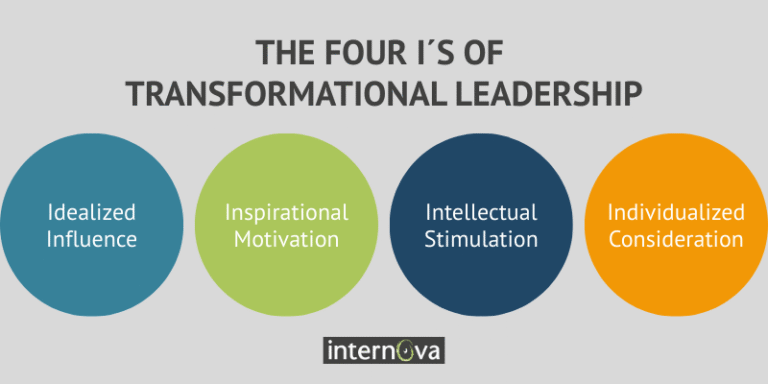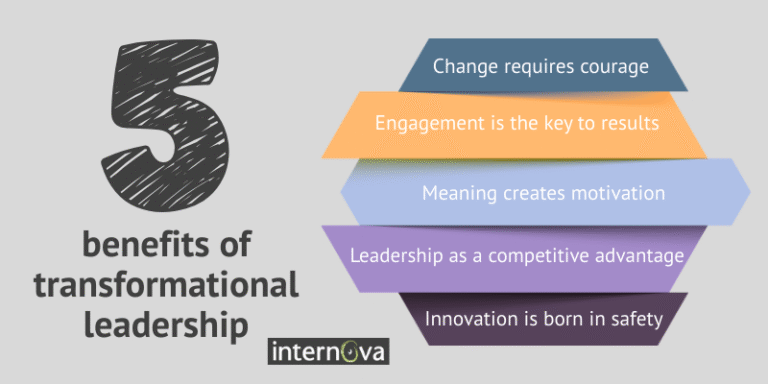Ingress
In a time when change is constant and employee engagement is crucial to success, it is no longer enough to be a manager who delegates and controls. Therefore today’s organizations need leaders who inspire, challenge and develop – leaders who dare to be transformative.
In this article, we’ll go over what transformational leadership means, why it’s relevant, and the benefits of it.
Transformational leadership is an approach based on trust, vision and personal development.
Based on my own experience as both a manager and executive coach for thousands of leaders, I have observed that transformational leadership is, unfortunately, still in short supply.
Moreover, many leaders today lack the tools and understanding needed to grasp how their way of leading affects engagement, performance, health, and overall results.
However, the leaders who do succeed go beyond merely providing structure and control. Instead, they demonstrate curiosity, empathy, and a genuine commitment to the people around them.
As a result, they build trust, inspire faith in the future, and clearly communicate how each individual’s contribution connects to something greater.
Ultimately, this is where motivation is born – in clarity, trust, and meaning.
Leadership is communicating people’s value and potential, so clearly that they see it in themselves.
Stephen R. Covey

What does transformational leadership mean?
Transformational leadership is a leadership style that focuses on motivating and developing employees through inspiration, personal care, and shared goals.
It’s about creating a culture where people grow – not just professionally, but also as individuals. Transformational leadership was formulated by James MacGregor Burns and further developed by Bernard M. Bass.
Definition of transformational leadership according to Burns
When one or more people engage with others in such a way that leaders and followers elevate each other to higher levels of motivation and morale.

The four I's – the core of transformational leadership
Transformational leadership rests on four pillars, often referred to as the “four I’s”:
1 Idealized influence
The leader acts as a role model by showing ethical, committed and authentic behavior. Building trust and respect creates a culture where employees want to follow – not because they have to, but because they believe in the leader.
“Leaders who inspire through their way of being create employees who want to contribute.”
2 Inspirational motivation
The transformational leader communicates a clear and meaningful vision that employees can embrace and make their own. Motivation is built through high expectations, passion, and a shared purpose – not through fear or control.
3 Intellectual stimulation
Here, the status quo is challenged. The leader encourages new thinking, innovation and learning – and creates a safe environment where it is okay to fail on the path to development. Employees are given space to think for themselves and contribute with new perspectives.
4 Individual care
Each employee is seen as unique. The leader is a mentor, coach, listens actively and promotes personal development. It’s about building relationships and giving room for independence and creativity.
Why transformational leadership is crucial today
In today’s working life, it is no longer enough to be a manager who governs with structure and control. Instead, employees are increasingly seeking meaning, development, and a sense of contributing to something bigger.
Meanwhile, organizations are facing rapid change, increased demands for innovation, and a growing need to build sustainable teams.
Against this backdrop, transformational leadership emerges as a crucial force. It’s not only about leading with vision, empathy, and courage – but also about creating a culture where people grow, dare, and genuinely want to contribute.
Moreover, it’s not just about soft values: research clearly shows that transformational leadership has a direct and positive impact on companies’ performance, innovation capacity, and long-term competitiveness.
So what makes transformational leadership so powerful? Here are five concrete benefits that show why it’s a leadership style for the future.

Five benefits of transformational leadership
1 Change takes courage
Change is constant – and requires adaptability. In an era of AI, digitalization, hybrid work, and the uncertain economy, companies need leaders who not only manage change – but drive it. Transformative leaders create a culture where innovation, learning, and flexibility are the norm.
2 Engagement is the key to results
Leadership engagement is a must to create employee engagement, which in turn is the key to better results. Research shows that transformational leadership increases motivation, well-being and performance in employees. Building relationships, showing empathy, and communicating a clear vision creates a sense of belonging – which directly impacts productivity.
3 Meaningfulness creates motivation
Organizations need more than just structure – they need meaning. Transformative leaders help employees see the purpose of their work. It’s no longer enough to just “do the work” – people want to feel like they’re contributing to something bigger. This is where the vision, values and coaching approach come in.
4 Leadership as a competitive advantage
Studies show that companies with transformative leaders perform better, especially when it comes to innovation, customer focus, and long-term profitability. It’s not just a soft valuation – it’s a strategic investment.
5 Innovation is born in security
Leaders who dare to show vulnerability and encourage new thinking create psychological safety – a prerequisite for innovation. Transformational leadership builds exactly the kind of environment where employees dare to think innovatively, take risks and learn from mistakes.
It’s not a one-size-fits-all leadership style – but in organizations where development, innovation, and sustainable engagement are central, transformational leadership is often the key to success.
Want to take the next step?
Do you want to be the kind of leader that people remember – and follow with pleasure? Then it’s time to take the next step.
Book a free and unconditional online dialogue with us at Internova. We tell you more about how you can strengthen your leadership – and create a more self-sustaining and sustainable team around you.
CLICK ON THE GREEN BUTTON BELOW!


